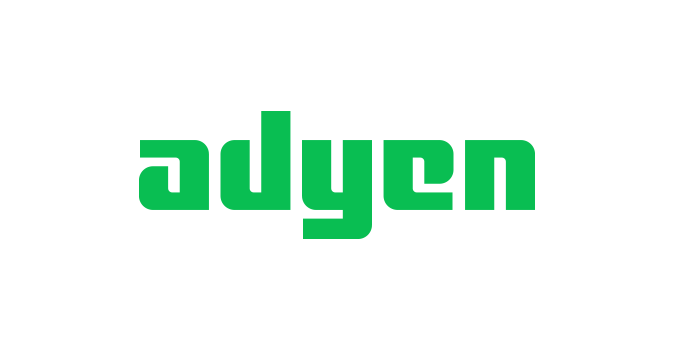 openapi-generator
openapi-generator
OpenAPI Generator allows generation of API client libraries (SDK generation), server stubs, documentation and configuration automatically given an OpenAPI Spec (v2, v3)
Top Related Projects
swagger-codegen contains a template-driven engine to generate documentation, API clients and server stubs in different languages by parsing your OpenAPI / Swagger definition.
API Blueprint
Turn any OpenAPI2/3 and Postman Collection file into an API server with mocking, transformations and validations.
📘 OpenAPI/Swagger-generated API Reference Documentation
Quick Overview
OpenAPI Generator is an open-source tool that generates API client libraries, server stubs, documentation, and configuration automatically from OpenAPI (formerly known as Swagger) specifications. It supports over 50 programming languages and frameworks, making it a versatile solution for API development and integration.
Pros
- Supports a wide range of programming languages and frameworks
- Generates consistent and well-documented code across different platforms
- Regularly updated to support the latest OpenAPI specifications
- Highly customizable through templates and configuration options
Cons
- Generated code may require manual tweaking for specific use cases
- Learning curve for advanced customization and template creation
- Some generated code may not follow best practices for certain languages
- Large codebase can make it challenging to contribute or debug issues
Code Examples
- Generating a Python client:
openapi-generator generate -i petstore.yaml -g python -o ./python-client
This command generates a Python client based on the petstore.yaml OpenAPI specification.
- Generating a Java Spring server:
openapi-generator generate -i petstore.yaml -g spring -o ./spring-server
This command generates a Java Spring server based on the petstore.yaml OpenAPI specification.
- Generating TypeScript-Angular client:
openapi-generator generate -i petstore.yaml -g typescript-angular -o ./angular-client
This command generates a TypeScript-Angular client based on the petstore.yaml OpenAPI specification.
Getting Started
-
Install OpenAPI Generator:
npm install @openapitools/openapi-generator-cli -g -
Create an OpenAPI specification file (e.g.,
api.yaml). -
Generate code for your desired language/framework:
openapi-generator generate -i api.yaml -g <language> -o ./output -
Navigate to the output directory and follow the generated README for further instructions on using the generated code.
Competitor Comparisons
swagger-codegen contains a template-driven engine to generate documentation, API clients and server stubs in different languages by parsing your OpenAPI / Swagger definition.
Pros of swagger-codegen
- Longer history and established user base
- Simpler architecture, potentially easier for beginners
- Supports some legacy OpenAPI/Swagger versions
Cons of swagger-codegen
- Less frequent updates and slower development cycle
- Fewer supported languages and frameworks
- Limited customization options compared to openapi-generator
Code Comparison
swagger-codegen:
public class SwaggerCodegen extends DefaultCodegen implements CodegenConfig {
public SwaggerCodegen() {
super();
// Configuration setup
}
}
openapi-generator:
public class OpenAPIGenerator extends DefaultCodegen implements CodegenConfig {
public OpenAPIGenerator() {
super();
// More extensive configuration options
}
}
The code structures are similar, but openapi-generator typically offers more configuration options and flexibility in its generator classes.
openapi-generator has evolved from swagger-codegen, offering improvements in various areas:
- More frequent updates and active community development
- Support for a wider range of programming languages and frameworks
- Enhanced customization options and template overrides
- Better handling of OpenAPI 3.x specifications
- Improved code quality and test coverage
While swagger-codegen remains a viable option, especially for projects with legacy Swagger specifications, openapi-generator is generally considered more feature-rich and actively maintained. The choice between the two depends on specific project requirements and preferences.
API Blueprint
Pros of API Blueprint
- Simpler, more human-readable syntax using Markdown
- Focuses on design-first approach, encouraging better API planning
- Supports mock servers and documentation generation out-of-the-box
Cons of API Blueprint
- Less widely adopted compared to OpenAPI Specification
- Limited tooling ecosystem and community support
- Lacks some advanced features available in OpenAPI, such as complex schema definitions
Code Comparison
API Blueprint:
# GET /users/{id}
+ Parameters
+ id: 1 (number, required) - User ID
+ Response 200 (application/json)
+ Attributes
+ name: John Doe (string)
+ email: john@example.com (string)
openapi-generator (OpenAPI 3.0):
/users/{id}:
get:
parameters:
- name: id
in: path
required: true
schema:
type: integer
responses:
'200':
content:
application/json:
schema:
type: object
properties:
name:
type: string
email:
type: string
While API Blueprint offers a more concise and readable syntax, openapi-generator (using OpenAPI Specification) provides a more structured and detailed approach. The OpenAPI ecosystem offers broader tool support and integration capabilities, making it more suitable for complex API projects. However, API Blueprint's simplicity can be advantageous for smaller projects or rapid prototyping.
Turn any OpenAPI2/3 and Postman Collection file into an API server with mocking, transformations and validations.
Pros of Prism
- Lightweight and focused on API mocking and validation
- Faster setup and easier to use for simple API scenarios
- Better suited for rapid prototyping and testing
Cons of Prism
- Limited code generation capabilities compared to OpenAPI Generator
- Less extensive language and framework support
- Fewer customization options for complex API scenarios
Code Comparison
Prism (CLI usage):
prism mock api.yaml
OpenAPI Generator (CLI usage):
openapi-generator generate -i api.yaml -g java -o ./generated
Summary
Prism is a lightweight tool focused on API mocking and validation, making it ideal for rapid prototyping and simple API scenarios. It offers faster setup and easier usage compared to OpenAPI Generator.
OpenAPI Generator, on the other hand, provides more extensive code generation capabilities, supporting a wide range of programming languages and frameworks. It offers greater customization options for complex API scenarios but may require more setup time.
The choice between the two depends on the specific needs of your project. Prism is better suited for quick API mocking and validation, while OpenAPI Generator excels in generating comprehensive client libraries and server stubs across multiple languages and frameworks.
📘 OpenAPI/Swagger-generated API Reference Documentation
Pros of Redoc
- Focused on API documentation rendering with a sleek, modern interface
- Easier to set up and use for quick API documentation needs
- Supports interactive "Try it out" feature for API endpoints
Cons of Redoc
- Limited to API documentation generation only
- Less customization options compared to openapi-generator
- Doesn't support code generation for client libraries or server stubs
Code Comparison
Redoc (HTML embedding):
<script src="https://cdn.redoc.ly/redoc/latest/bundles/redoc.standalone.js"></script>
<redoc spec-url="https://api.example.com/openapi.json"></redoc>
openapi-generator (CLI usage):
openapi-generator generate -i https://api.example.com/openapi.json -g python -o ./generated
Summary
Redoc is a specialized tool for rendering OpenAPI documentation with a focus on user-friendly, interactive API reference pages. It's ideal for projects that need quick, attractive API documentation without extensive customization or code generation needs.
openapi-generator, on the other hand, is a more comprehensive tool that can generate client libraries, server stubs, and documentation in various formats and languages. It offers greater flexibility and customization options but may require more setup and configuration for simple documentation tasks.
Choose Redoc for straightforward, visually appealing API documentation, and openapi-generator for more complex API development workflows involving code generation and extensive customization.
Convert  designs to code with AI
designs to code with AI

Introducing Visual Copilot: A new AI model to turn Figma designs to high quality code using your components.
Try Visual CopilotREADME
OpenAPI Generator
Master (7.15.0):
:star::star::star: If you would like to contribute, please refer to guidelines and a list of open tasks. :star::star::star:
:bangbang: To migrate from Swagger Codegen to OpenAPI Generator, please refer to the migration guide :bangbang:
:notebook_with_decorative_cover: For more information, please refer to the Wiki page and FAQ :notebook_with_decorative_cover:
:notebook_with_decorative_cover: The eBook A Beginner's Guide to Code Generation for REST APIs is a good starting point for beginners :notebook_with_decorative_cover:
:warning: If the OpenAPI spec, templates or any input (e.g. options, environment variables) is obtained from an untrusted source or environment, please make sure you've reviewed these inputs before using OpenAPI Generator to generate the API client, server stub or documentation to avoid potential security issues (e.g. code injection). For security vulnerabilities, please contact team@openapitools.org. :warning:
:bangbang: Both "OpenAPI Tools" (https://OpenAPITools.org - the parent organization of OpenAPI Generator) and "OpenAPI Generator" are not affiliated with OpenAPI Initiative (OAI) :bangbang:
Sponsors
If you find OpenAPI Generator useful for work, please consider asking your company to support this Open Source project by becoming a sponsor. You can also individually sponsor the project by becoming a backer.
Thank you to our bronze sponsors!
Thank you GoDaddy for sponsoring the domain names, Linode for sponsoring the VPS, Checkly for sponsoring the API monitoring and Gradle for sponsoring Develocity
Overview
OpenAPI Generator allows generation of API client libraries (SDK generation), server stubs, documentation and configuration automatically given an OpenAPI Spec (both 2.0 and 3.0 are supported). Currently, the following languages/frameworks are supported:
| Languages/Frameworks | |
|---|---|
| API clients | ActionScript, Ada, Apex, Bash, C, C# (.net 2.0, 3.5 or later, .NET Standard 1.3 - 2.1, .NET Core 3.1, .NET 5.0. Libraries: RestSharp, GenericHost, HttpClient), C++ (Arduino, cpp-restsdk, Qt5, Tizen, Unreal Engine 4), Clojure, Crystal, Dart, Elixir, Elm, Eiffel, Erlang, Go, Groovy, Haskell (http-client, Servant), Java (Apache HttpClient 4.x, Apache HttpClient 5.x, Jersey2.x, OkHttp, Retrofit1.x, Retrofit2.x, Feign, RestTemplate, RESTEasy, Vertx, Google API Client Library for Java, Rest-assured, Spring 5 Web Client, Spring 6 RestClient, MicroProfile Rest Client, Helidon), Jetbrains HTTP Client, Julia, k6, Kotlin, Lua, N4JS, Nim, Node.js/JavaScript (ES5, ES6, AngularJS with Google Closure Compiler annotations, Flow types, Apollo GraphQL DataStore), Objective-C, OCaml, Perl, PHP, PowerShell, Python, R, Ruby, Rust (hyper, reqwest, rust-server), Scala (akka, http4s, scalaz, sttp, swagger-async-httpclient, pekko), Swift (2.x, 3.x, 4.x, 5.x, 6.x), Typescript (AngularJS, Angular (9.x - 19.x), Aurelia, Axios, Fetch, Inversify, jQuery, Nestjs, Node, redux-query, Rxjs), XoJo, Zapier |
| Server stubs | Ada, C# (ASP.NET Core, Azure Functions), C++ (Pistache, Restbed, Qt5 QHTTPEngine), Erlang, F# (Giraffe), Go (net/http, Gin, Echo), Haskell (Servant, Yesod), Java (MSF4J, Spring, Undertow, JAX-RS: CDI, CXF, Inflector, Jersey, RestEasy, Play Framework, PKMST, Vert.x, Apache Camel, Helidon), Julia, Kotlin (Spring Boot, Ktor, Vert.x), PHP (Flight, Laravel, Lumen, Mezzio (fka Zend Expressive), Slim, Silex, Symfony), Python (FastAPI, Flask), NodeJS, Ruby (Sinatra, Rails5), Rust (rust-server), Scala (Akka, Finch, Lagom, Play, Cask, Scalatra) |
| API documentation generators | HTML, Confluence Wiki, Asciidoc, Markdown, PlantUML |
| Configuration files | Apache2 |
| Others | GraphQL, JMeter, Ktorm, MySQL Schema, Postman Collection, Protocol Buffer, WSDL |
Table of contents
- Sponsors
- Overview
- Table of contents
- 1 - Installation
- 1.2 - Artifacts on Maven Central
- 2 - Getting Started
- 3 - Usage
- 4 - Companies/Projects using OpenAPI Generator
- 5 - Presentations/Videos/Tutorials/Books
- 6 - About Us
- 7 - License
1 - Installation
1.1 - Compatibility
The OpenAPI Specification has undergone 3 revisions since initial creation in 2010. The openapi-generator project has the following compatibilities with the OpenAPI Specification:
| OpenAPI Generator Version | Release Date | Notes |
|---|---|---|
| 7.15.0 (upcoming minor release) SNAPSHOT | 29.07.2025 | Minor release with breaking changes (with fallback) |
| 7.14.0 (latest stable release) | 25.06.2025 | Minor release with breaking changes (with fallback) |
| 6.6.0 | 11.05.2023 | Minor release with breaking changes (with fallback) |
| 5.4.0 | 31.01.2022 | Minor release with breaking changes (with fallback) |
| 4.3.1 | 06.05.2020 | Patch release (enhancements, bug fixes, etc) |
OpenAPI Spec compatibility: 1.0, 1.1, 1.2, 2.0, 3.0, 3.1 (beta support)
(We do not publish daily/nightly build. Please use SNAPSHOT instead)
For old releases, please refer to the Release page.
For decommissioned generators/libraries/frameworks, please refer to the "Decommission" label in the pull request page.
1.2 - Artifacts on Maven Central
You can find our released artifacts on maven central:
Core:
<dependency>
<groupId>org.openapitools</groupId>
<artifactId>openapi-generator</artifactId>
<version>${openapi-generator-version}</version>
</dependency>
See the different versions of the openapi-generator artifact available on maven central.
Cli:
<dependency>
<groupId>org.openapitools</groupId>
<artifactId>openapi-generator-cli</artifactId>
<version>${openapi-generator-version}</version>
</dependency>
See the different versions of the openapi-generator-cli artifact available on maven central.
Maven plugin:
<dependency>
<groupId>org.openapitools</groupId>
<artifactId>openapi-generator-maven-plugin</artifactId>
<version>${openapi-generator-version}</version>
</dependency>
- See the different versions of the openapi-generator-maven-plugin artifact available on maven central.
- Readme
Gradle plugin:
<dependency>
<groupId>org.openapitools</groupId>
<artifactId>openapi-generator-gradle-plugin</artifactId>
<version>${openapi-generator-version}</version>
</dependency>
- See the different versions of the openapi-generator-gradle-plugin artifact available on maven central.
- Readme
1.3 - Download JAR
If you're looking for the latest stable version, you can grab it directly from Maven.org (Java 11 runtime at a minimum):
JAR location: https://repo1.maven.org/maven2/org/openapitools/openapi-generator-cli/7.14.0/openapi-generator-cli-7.14.0.jar
For Mac/Linux users:
wget https://repo1.maven.org/maven2/org/openapitools/openapi-generator-cli/7.14.0/openapi-generator-cli-7.14.0.jar -O openapi-generator-cli.jar
For Windows users, you will need to install wget or you can use Invoke-WebRequest in PowerShell (3.0+), e.g.
Invoke-WebRequest -OutFile openapi-generator-cli.jar https://repo1.maven.org/maven2/org/openapitools/openapi-generator-cli/7.14.0/openapi-generator-cli-7.14.0.jar
After downloading the JAR, run java -jar openapi-generator-cli.jar help to show the usage.
For Mac users, please make sure Java 11 is installed (Tips: run java -version to check the version), and export JAVA_HOME in order to use the supported Java version:
export JAVA_HOME=`/usr/libexec/java_home -v 1.11`
export PATH=${JAVA_HOME}/bin:$PATH
Launcher Script
One downside to manual jar downloads is that you don't keep up-to-date with the latest released version. We have a Bash launcher script at bin/utils/openapi-generator.cli.sh which resolves this issue.
To install the launcher script, copy the contents of the script to a location on your path and make the script executable.
An example of setting this up (NOTE: Always evaluate scripts curled from external systems before executing them).
mkdir -p ~/bin/openapitools
curl https://raw.githubusercontent.com/OpenAPITools/openapi-generator/master/bin/utils/openapi-generator-cli.sh > ~/bin/openapitools/openapi-generator-cli
chmod u+x ~/bin/openapitools/openapi-generator-cli
export PATH=$PATH:~/bin/openapitools/
Now, openapi-generator-cli is "installed". On invocation, it will query the GitHub repository for the most recently released version. If this matches the last downloaded jar,
it will execute as normal. If a newer version is found, the script will download the latest release and execute it.
If you need to invoke an older version of the generator, you can define the variable OPENAPI_GENERATOR_VERSION either ad hoc or globally. You can export this variable if you'd like to persist a specific release version.
Examples:
# Execute latest released openapi-generator-cli
openapi-generator-cli version
# Execute version 4.1.0 for the current invocation, regardless of the latest released version
OPENAPI_GENERATOR_VERSION=4.1.0 openapi-generator-cli version
# Execute version 4.1.0-SNAPSHOT for the current invocation
OPENAPI_GENERATOR_VERSION=4.1.0-SNAPSHOT openapi-generator-cli version
# Execute version 4.0.2 for every invocation in the current shell session
export OPENAPI_GENERATOR_VERSION=4.0.2
openapi-generator-cli version # is 4.0.2
openapi-generator-cli version # is also 4.0.2
# To "install" a specific version, set the variable in .bashrc/.bash_profile
echo "export OPENAPI_GENERATOR_VERSION=4.0.2" >> ~/.bashrc
source ~/.bashrc
openapi-generator-cli version # is always 4.0.2, unless any of the above overrides are done ad hoc
1.4 - Build Projects
To build from source, you need the following installed and available in your $PATH:
-
Apache Maven 3.8.8 or greater (optional)
After cloning the project, you can build it from source using maven wrapper:
- Linux:
./mvnw clean install - Windows:
mvnw.cmd clean install
Nix users
If you're a nix user, you can enter OpenAPI Generator shell, by typing:
nix develop
It will enter a shell with Java 11 installed.
Direnv supports automatically loading of the nix developer shell, so if you're using direnv too, type:
direnv allow
and have java and mvn set up with correct versions each time you enter project directory.
The default build contains minimal static analysis (via CheckStyle). To run your build with PMD and Spotbugs, use the static-analysis profile:
- Linux:
./mvnw -Pstatic-analysis clean install - Windows:
mvnw.cmd -Pstatic-analysis clean install
1.5 - Homebrew
To install, run brew install openapi-generator
Here is an example usage to generate a Ruby client:
openapi-generator generate -i https://raw.githubusercontent.com/openapitools/openapi-generator/master/modules/openapi-generator/src/test/resources/3_0/petstore.yaml -g ruby -o /tmp/test/
To reinstall with the latest master, run brew uninstall openapi-generator && brew install --HEAD openapi-generator
To install OpenJDK (pre-requisites), please run
brew tap AdoptOpenJDK/openjdk
brew install --cask adoptopenjdk11
export JAVA_HOME=`/usr/libexec/java_home -v 1.11`
or download installer via https://adoptium.net/
To install Maven (optional), please run
brew install maven
1.6 - Docker
Public Pre-built Docker images
- https://hub.docker.com/r/openapitools/openapi-generator-cli/ (official CLI)
- https://hub.docker.com/r/openapitools/openapi-generator-online/ (official web service)
OpenAPI Generator CLI Docker Image
The OpenAPI Generator image acts as a standalone executable. It can be used as an alternative to installing via homebrew, or for developers who are unable to install Java or upgrade the installed version.
To generate code with this image, you'll need to mount a local location as a volume.
Example:
docker run --rm -v "${PWD}:/local" openapitools/openapi-generator-cli generate \
-i https://raw.githubusercontent.com/openapitools/openapi-generator/master/modules/openapi-generator/src/test/resources/3_0/petstore.yaml \
-g go \
-o /local/out/go
The generated code will be located under ./out/go in the current directory.
OpenAPI Generator Online Docker Image
The openapi-generator-online image can act as a self-hosted web application and API for generating code. This container can be incorporated into a CI pipeline, and requires at least two HTTP requests and some docker orchestration to access generated code.
Example usage:
# Start container at port 8888 and save the container id
> CID=$(docker run -d -p 8888:8080 openapitools/openapi-generator-online)
# allow for startup
> sleep 10
# Get the IP of the running container (optional)
GEN_IP=$(docker inspect --format '{{.NetworkSettings.IPAddress}}' $CID)
# Execute an HTTP request to generate a Ruby client
> curl -X POST --header 'Content-Type: application/json' --header 'Accept: application/json' \
-d '{"openAPIUrl": "https://raw.githubusercontent.com/openapitools/openapi-generator/master/modules/openapi-generator/src/test/resources/3_0/petstore.yaml"}' \
'http://localhost:8888/api/gen/clients/ruby'
{"code":"c2d483.3.4672-40e9-91df-b9ffd18d22b8","link":"http://localhost:8888/api/gen/download/c2d483.3.4672-40e9-91df-b9ffd18d22b8"}
# Download the generated zip file
> wget http://localhost:8888/api/gen/download/c2d483.3.4672-40e9-91df-b9ffd18d22b8
# Unzip the file
> unzip c2d483.3.4672-40e9-91df-b9ffd18d22b8
# Shutdown the openapi generator image
> docker stop $CID && docker rm $CID
Development in docker
You can use run-in-docker.sh to do all development. This script maps your local repository to /gen
in the docker container. It also maps ~/.m2/repository to the appropriate container location.
To execute mvn package:
git clone https://github.com/openapitools/openapi-generator
cd openapi-generator
./run-in-docker.sh mvn package
Build artifacts are now accessible in your working directory.
Once built, run-in-docker.sh will act as an executable for openapi-generator-cli. To generate code, you'll need to output to a directory under /gen (e.g. /gen/out). For example:
./run-in-docker.sh help # Executes 'help' command for openapi-generator-cli
./run-in-docker.sh list # Executes 'list' command for openapi-generator-cli
./run-in-docker.sh generate -i modules/openapi-generator/src/test/resources/3_0/petstore.yaml \
-g go -o /gen/out/go-petstore -p packageName=petstore # generates go client, outputs locally to ./out/go-petstore
Troubleshooting
If an error like this occurs, just execute the ./mvnw clean install -U command:
org.apache.maven.lifecycle.LifecycleExecutionException: Failed to execute goal org.apache.maven.plugins:maven-surefire-plugin:2.19.1:test (default-test) on project openapi-generator: A type incompatibility occurred while executing org.apache.maven.plugins:maven-surefire-plugin:2.19.1:test: java.lang.ExceptionInInitializerError cannot be cast to java.io.IOException
./run-in-docker.sh ./mvnw clean install -U
Failed to execute goal org.fortasoft:gradle-maven-plugin:1.0.8:invoke (default) on project openapi-generator-gradle-plugin-mvn-wrapper: org.gradle.tooling.BuildException: Could not execute build using Gradle distribution 'https://services.gradle.org/distributions/gradle-4.7-bin.zip'
Right now: no solution for this one :|
Run Docker in Vagrant
Prerequisite: install Vagrant and VirtualBox.
git clone https://github.com/openapitools/openapi-generator.git
cd openapi-generator
vagrant up
vagrant ssh
cd /vagrant
./run-in-docker.sh ./mvnw package
1.7 - NPM
There is also an NPM package wrapper available for different platforms (e.g. Linux, Mac, Windows). (JVM is still required) Please see the project's README there for more information.
Install it globally to get the CLI available on the command line:
npm install @openapitools/openapi-generator-cli -g
openapi-generator-cli version
To use a specific version of "openapi-generator-cli"
openapi-generator-cli version-manager set 7.14.0
Or install it as dev-dependency:
npm install @openapitools/openapi-generator-cli -D
You can use locally built JARs or SNAPSHOT versions as well.
1.8 - pip
Platform(s): Linux, macOS, Windows Install via PyPI (
javaexecutable is needed to run):
pip install openapi-generator-cli
To install a specific version
pip install openapi-generator-cli==7.14.0
You can also install with jdk4py instead of java binary. (python>=3.10 is required)
pip install openapi-generator-cli[jdk4py]
Ref: https://github.com/openAPITools/openapi-generator-pip
2 - Getting Started
To generate a PHP client for petstore.yaml, please run the following
git clone https://github.com/openapitools/openapi-generator
cd openapi-generator
./mvnw clean package
java -jar modules/openapi-generator-cli/target/openapi-generator-cli.jar generate \
-i https://raw.githubusercontent.com/openapitools/openapi-generator/master/modules/openapi-generator/src/test/resources/3_0/petstore.yaml \
-g php \
-o /var/tmp/php_api_client
(if you're on Windows, replace the last command with java -jar modules\openapi-generator-cli\target\openapi-generator-cli.jar generate -i https://raw.githubusercontent.com/openapitools/openapi-generator/master/modules/openapi-generator/src/test/resources/3_0/petstore.yaml -g php -o c:\temp\php_api_client)
You can also download the JAR (latest release) directly from maven.org
To get a list of general options available, please run java -jar modules/openapi-generator-cli/target/openapi-generator-cli.jar help generate
To get a list of PHP specified options (which can be passed to the generator with a config file via the -c option), please run java -jar modules/openapi-generator-cli/target/openapi-generator-cli.jar config-help -g php
3 - Usage
To generate a sample client library
You can build a client against the Petstore API as follows:
./bin/generate-samples.sh ./bin/configs/java-okhttp-gson.yaml
(On Windows, please install GIT Bash for Windows to run the command above)
This script uses the default library, which is okhttp-gson. It will run the generator with this command:
java -jar modules/openapi-generator-cli/target/openapi-generator-cli.jar generate \
-i https://raw.githubusercontent.com/openapitools/openapi-generator/master/modules/openapi-generator/src/test/resources/3_0/petstore.yaml \
-g java \
-t modules/openapi-generator/src/main/resources/Java \
--additional-properties artifactId=petstore-okhttp-gson,hideGenerationTimestamp=true \
-o samples/client/petstore/java/okhttp-gson
with a number of options. The java options are documented here.
You can also get the options with the help generate command (below only shows partial results):
NAME
openapi-generator-cli generate - Generate code with the specified
generator.
SYNOPSIS
openapi-generator-cli generate
[(-a <authorization> | --auth <authorization>)]
[--api-name-suffix <api name suffix>] [--api-package <api package>]
[--artifact-id <artifact id>] [--artifact-version <artifact version>]
[(-c <configuration file> | --config <configuration file>)] [--dry-run]
[(-e <templating engine> | --engine <templating engine>)]
[--enable-post-process-file]
[(-g <generator name> | --generator-name <generator name>)]
[--generate-alias-as-model] [--git-host <git host>]
[--git-repo-id <git repo id>] [--git-user-id <git user id>]
[--global-property <global properties>...] [--group-id <group id>]
[--http-user-agent <http user agent>]
[(-i <spec file> | --input-spec <spec file>)]
[--ignore-file-override <ignore file override location>]
[--import-mappings <import mappings>...]
[--instantiation-types <instantiation types>...]
[--invoker-package <invoker package>]
[--language-specific-primitives <language specific primitives>...]
[--legacy-discriminator-behavior] [--library <library>]
[--log-to-stderr] [--minimal-update]
[--model-name-prefix <model name prefix>]
[--model-name-suffix <model name suffix>]
[--model-package <model package>]
[(-o <output directory> | --output <output directory>)] [(-p <additional properties> | --additional-properties <additional properties>)...]
[--package-name <package name>] [--release-note <release note>]
[--remove-operation-id-prefix]
[--reserved-words-mappings <reserved word mappings>...]
[(-s | --skip-overwrite)] [--server-variables <server variables>...]
[--skip-validate-spec] [--strict-spec <true/false strict behavior>]
[(-t <template directory> | --template-dir <template directory>)]
[--type-mappings <type mappings>...] [(-v | --verbose)]
OPTIONS
-a <authorization>, --auth <authorization>
adds authorization headers when fetching the OpenAPI definitions
remotely. Pass in a URL-encoded string of name:header with a comma
separating multiple values
...... (results omitted)
-v, --verbose
verbose mode
You can then compile and run the client, as well as unit tests against it:
cd samples/client/petstore/java/okhttp-gson
mvn package
Other generators have samples too.
3.1 - Customization
Please refer to customization.md on how to customize the output (e.g. package name, version)
3.2 - Workflow Integration (Maven, Gradle, Github, CI/CD)
Please refer to integration.md on how to integrate OpenAPI generator with Maven, Gradle, sbt, Bazel, Github and CI/CD.
3.3 - Online OpenAPI generator
Here are the public online services:
- latest stable version: https://api.openapi-generator.tech
- latest master: https://api-latest-master.openapi-generator.tech (updated with latest master every hour)
The server is sponsored by Linode 
(These services are beta and do not have any guarantee on service level)
Please refer to online.md on how to run and use the openapi-generator-online - a web service for openapi-generator.
3.4 - License information on Generated Code
The OpenAPI Generator project is intended as a benefit for users of the Open API Specification. The project itself has the License as specified. In addition, please understand the following points:
- The templates included with this project are subject to the License.
- Generated code is intentionally not subject to the parent project license
When code is generated from this project, it shall be considered AS IS and owned by the user of the software. There are no warranties--expressed or implied--for generated code. You can do what you wish with it, and once generated, the code is your responsibility and subject to the licensing terms that you deem appropriate.
3.5 - IDE Integration
Here is a list of community-contributed IDE plug-ins that integrate with OpenAPI Generator:
- Eclipse: Codewind OpenAPI Tools for Eclipse by IBM
- IntelliJ IDEA: OpenAPI Generator by Jim Schubert
- IntelliJ IDEA: Senya Editor by senya.io
- RepreZen API Studio
- Visual Studio: REST API Client Code Generator by Christian Resma Helle
- Visual Studio Code: Codewind OpenAPI Tools by IBM
4 - Companies/Projects using OpenAPI Generator
Here are some companies/projects (alphabetical order) using OpenAPI Generator in production. To add your company/project to the list, please visit README.md and click on the icon to edit the page.
- Aalborg University
- act coding
- Adaptant Solutions AG
- adesso SE
- adorsys GmbH & Co.KG
- Adyen
- Agoda
- Airthings
- Aleri Solutions Gmbh
- Allianz
- Angular.Schule
- Aqovia
- Australia and New Zealand Banking Group (ANZ)
- Arduino
- ASKUL
- Amazon Web Services (AWS)
- b<>com
- ç¾åº¦è¥é
- Bandwidth
- Banzai Cloud
- BIMData.io
- Bithost GmbH
- Bosch Connected Industry
- Boxever
- Brevy
- Bunker Holding Group
- California State University, Northridge
- CAM
- Camptocamp
- Carlsberg Group
- CERN
- Christopher Queen Consulting
- Cisco
- codecentric AG
- CoinAPI
- Commencis
- ConfigCat
- cronn GmbH
- Crossover Health
- Cupix
- Datadog
- DB Systel
- Deeporute.ai
- Devsupply
- dmTECH GmbH
- DocSpring
- dwango
- Edge Impulse
- Element AI
- Embotics
- emineo
- fastly
- Fenergo
- freee
- FreshCells
- Fuse
- Gantner
- GenFlow
- GetYourGuide
- Glovo
- GMO Pepabo
- GoDaddy
- Gumtree
- Here
- IBM
- Instana
- Interxion
- Inquisico
- JustStar
- k6.io
- Klarna
- Kronsoft Development
- Kubernetes
- Landeshauptstadt München - it@M
- Linode
- Logicdrop
- Lumeris
- LVM Versicherungen
- MailSlurp
- Manticore Search
- Mastercard
- Médiavision
- Metaswitch
- MoonVision
- Myworkout
- NamSor
- Neverfail
- NeuerEnergy
- Nokia
- OneSignal
- Options Clearing Corporation (OCC)
- Openet
- openVALIDATION
- Oracle
- Paxos
- Plaid
- PLAID, Inc.
- Ponicode
- Pricefx
- PrintNanny
- Prometheus/Alertmanager
- Qavar
- QEDIT
- Qovery
- Qulix Systems
- Raksul
- Raiffeisen Schweiz Genossenschaft
- RedHat
- RepreZen API Studio
- REST United
- Robocorp
- Robotinfra
- SearchApi
- SmartHR
- Sony Interactive Entertainment
- Splitit
- Stingray
- Suva
- Svix
- Telstra
- Tencent
- The University of Aizu
- TINQIN
- Translucent ApS
- TravelTime platform
- TribalScale
- Trifork
- TUI InfoTec GmbH
- Twilio
- unblu inc.
- Veamly
- VMWare
- wbt-solutions
- Woleet
- WSO2
- Vouchery.io
- Xero
- Yahoo Japan
- viadee
- Vonage
- YITU Technology
- Yelp
- Zalando
- 3DS Outscale
5 - Presentations/Videos/Tutorials/Books
- 2018/05/12 - OpenAPI Generator - community drivenã§æé·ããã³ã¼ãã¸ã§ãã¬ã¼ã¿ by ä¸éæ人
- 2018/05/15 - Starting a new open-source project by Jeremie Bresson
- 2018/05/15 - REST APIä»æ§ããAPIã¯ã©ã¤ã¢ã³ããã¹ã¿ããµã¼ããèªåçæãããOpenAPI Generatorããªã¼ãã³ã½ã¼ã¹ã§å ¬éãSwagger Codegenããã®ãã©ã¼ã¯ by Publickey
- 2018/06/08 - Swagger Codegen is now OpenAPI Generator by JohannesHoppe
- 2018/06/21 - Connect your JHipster apps to the world of APIs with OpenAPI and gRPC by Christophe Bornet at JHipster Conf 2018
- 2018/06/22 - OpenAPI Generator 㧠Gatling Client ãçæãã¦ã¿ã at ã½ã¢ãµã³
- 2018/06/27 - Lessons Learned from Leading an Open-Source Project Supporting 30+ Programming Languages - William Cheng at LinuxCon + ContainerCon + CloudOpen China 2018
- 2018/07/19 - OpenAPI Generator Contribution Quickstart - RingCentral Go SDK by John Wang
- 2018/08/22 - OpenAPI Generatorã®ããã¸ã§ã¯ãæ§æãªã©ã®ã¡ã¢ by Yusuke Iinuma
- 2018/09/12 - RepreZen and OpenAPI 3.0: Now is the Time by Miles Daffin
- 2018/10/31 - A node package wrapper for openapi-generator
- 2018/11/03 - OpenAPI Generator + golang + Flutter ã§ã¢ããªéçº by Ryuichi Daigo
- 2018/11/15 - åºäºopenapi3.0çyamlæ件çæjava代ç çä¸æ¬¡å®è·µ by ç±éç
- 2018/11/18 - Generating PHP library code from OpenAPI by Lorna Jane at LORNAJANE Blog
- 2018/11/19 - OpenAPIs are everywhere by Jeremie Bresson (Unblu) at EclipseCon Europe 2018
- 2018/12/09 - openapi-generator ãã«ã¹ã¿ãã¤ãºããæ¹æ³ by @watiko
- 2019/01/03 - Calling a Swagger service from Apex using openapi-generator by Mikkel Flindt Heisterberg
- 2019/01/13 - OpenAPI Generatorã§RESTful APIã®å®ç¾©æ¸ããè²ã èªåçæãã by @ky_yk_d
- 2019/01/20 - Contract-First API Development with OpenAPI Generator and Connexion by Anil Can Aydin
- 2019/01/30 - Rapid Application Development With API First Approach Using Open-API Generator by Milan Sonkar
- 2019/02/02 - å¹³éãä¿ã¡ãã³ã¼ããçæãã ã OpenAPI Generatorèªçã®èæ¯ã¨è»è·¡ ã by ä¸éæ人 at Gunma.web #34 ã¹ãã¼ãé§åéçº
- 2019/02/20 - An adventure in OpenAPI V3 code generation by Phil Cluff
- 2019/02/26 - Building API Services: A Beginnerâs Guide by Ratros Y. in Google Cloud Platform Blog
- 2019/02/26 - Building APIs with OpenAPI: Continued by Ratros Y. in Google Cloud Platform Blog
- 2019-03-07 - OpenAPI Generator 㧠Spring Boot 㨠Angular ãã¿ã¤ãã»ã¼ãã«ç¹ã by Tomofumi Chiba
- 2019-03-16 - A Quick introduction to manual OpenAPI V3 by vados at VADOSWARE
- 2019-03-25 - Access any REST service with the SAP S/4HANA Cloud SDK by Alexander Duemont
- 2019-03-25 - OpenAPI generatorã試ãã¦ã¿ã by @amuyikam
- 2019-03-27 - OpenAPI3ã使ã£ã¦ã¿ããï¼Goè¨èªã§ã¯ã©ã¤ã¢ã³ãã¨ã¹ã¿ãã®èªåçæã¾ã§ï¼ by @gold_kou
- 2019-04-17 - OpenAPIã«ããã¹ãã¼ããã¡ã¼ã¹ãéçºã®å®æ½ãµã³ãã«ã¨Cloud Runã«ã¤ã㦠by @yukey1031
- 2019-04-18 - How to use OpenAPI3 for API developer (RubyKaigi 2019) by @ota42y at RubyKaigi 2019
- 2019-04-29 - A Beginner's Guide to Code Generation for REST APIs (OpenAPI Generator) by William Cheng
- 2019-05-01 - Design and generate a REST API from Swagger / OpenAPI in Java, Python, C# and more by Simply How
- 2019-05-17 - Generate Spring Boot REST API using Swagger/OpenAPI by Antonie Zafirov
- 2019-05-22 - REST APIs代ç çææå(OpenAPI Generator) by William Cheng, Xin Meng
- 2019-05-24 - REST API 代碼çææå (OpenAPI Generator) by William Cheng
- 2019-06-24 - Kubernetes Clients and OpenAPI Generator by William Cheng at Kubernetes Contributor Summits Shanghai 2019
- 2019-06-28 Codewind OpenAPI Tools in Eclipse Marketplace by IBM
- 2019-06-29 Codewind OpenAPI Tools in Visual Studio Marketplace by IBM
- 2019-07-04 - REST API ã®ããã®ã³ã¼ããçæå ¥é (OpenAPI Generator) by William Cheng, ä¸éæ人, åç°ææ
- 2019-07-08 - OpenAPI Generator ã«ã³ã³ããªãã¥ã¼ãããã社åãè¼ã£ã話ã(CAM) - CAM TECH BLOG by CAM, Inc.
- 2019-07-14 - OpenAPI Generatorã§Pythonã®ã¯ã©ã¤ã¢ã³ãã©ã¤ãã©ãªãä½æãã by yuji38kwmt
- 2019-07-19 - Developer Experience (DX) for Open-Source Projects: How to Engage Developers and Build a Growing Developer Community by William Cheng, ä¸éæ人 at Open Source Summit Japan 2019
- 2019-08-14 - Our OpenAPI journey with Standardizing SDKs by Sebastian Burgstaller at Bitmovin
- 2019-08-15 - APIã®ã³ã¼ããèªåçæããããã ããªãgRPCã§ãªãã¦ããããªã? by M3, Inc.
- 2019-08-22 - ãã¤ã¯ããµã¼ãã¹ã«ãããWeb APIã¹ãã¼ãã®ç®¡çâ GraphQLãgRPCãOpenAPIã®ç¹å¾´ã¨ä½¿ãã©ãã by @ota42y
- 2019-08-24 - Swaggerããã¥ã¡ã³ãããOpenAPI Generatorã使ã£ã¦ã¢ãã¯ãµã¼ãã¼ä½æ by åæ¬æ£ç¾©
- 2019-08-29 - OpenAPIåæ¢ by peakxie at è ¾è®¯äºç¤¾åº
- 2019-08-29 - å ¨é¢è¿åï¼Kubernetes CRD 1.16 GAåç» by Min Kim at ServiceMesher Blog
- 2019-09-01 - Creating a PHP-Slim server using OpenAPI (Youtube video) by Daniel Persson
- 2019-09-06 - Vert.x and OpenAPI by Stephan H Wissel at wissel.net blog
- 2019-09-09 - Cloud-native development - Creating RESTful microservices in IBM Cloud Docs
- 2019-09-14 - Generating and Configuring a Mastercard API Client at Mastercard Developers Platform
- 2019-09-15 - OpenAPI(Swagger)å°å ¥ä¸èª¿ã¹ by Shoichi Kuraoka
- 2019-09-17 - Tutorial: Documenting http4k APIs with OpenApi3 by http4k
- 2019-09-22 - OpenAPI 3ãå®å ¨ã«ç解ã§ããæ¬ by @ota42y
- 2019-09-22 - RESTful APIs: Tutorial of OpenAPI Specification by Amir Lavasani
- 2019-09-22 - Redefining SDKs as software diversity kits by Sid Maestre (Xero) at DevRelCon San Francisco 2019
- 2019-09-23 - swaggerããOpenApi Generatorã§Springã®ã³ã¼ããèªåçæ by @littleFeet at Qiita
- 2019-09-24 - Eine Stunde was mit Api First! by @janweinschenker at Java Forum Nord
- 2019-10-09 - openapi-generator ã§çæãã Go ã¯ã©ã¤ã¢ã³ã㧠Bearer èªè¨¼ããã by Akira Tanimura
- 2019-10-10 - Automatic Generation of REST Clients by Thomas Peyrard, Senior Software Engineer at Criteo in Full-Stack Tech Talks (Meetup)
- 2019-10-12 - OpenApièªå¨çæclient by é泽洲
- 2019-10-16 - How to ship APIs faster? by Simon Guilliams @ PoniCode
- 2019-10-22 - OpenAPI + Spring Boot(Kotlin)ã§ãã¡ã¤ã«ãã¦ã³ãã¼ãAPIãä½æãã by Yuki Furukawa
- 2019-10-24 - Microprofile OpenAPI - Code First or Design First? by Peter [pÉÊÉ] Steiner at eclipsecon Europe 2019
- 2019-11-06 - Generating API clients based on OpenAPI v3 specifications by Dominik JastrzÄbski @ 98elements
- 2019-11-06 - OpenAPIãå©ç¨ãã¦èªåã®APIãµã¼ãã¼(Sinatra)ã移æ¤ããæã®ã¡ã¢ by Yasuhiro ABE
- 2019-11-07 - API First development with OpenAPI - You should you practise it !? by Nick Van Hoof at Devoxx Belgium 2019
- 2019-11-08 - JHipster beyond CRUD - API-First for Enterprises by Enrico Costanzi by Enrico Costanzi at JHipster Conf 2019 in Paris
- 2019-11-11 - TypeScript REST APIã¯ã©ã¤ã¢ã³ã by @unhurried
- 2019-11-11 - One Spec to Rule them all - OpenAPI in Action by Andreas Litt at code.talks 2019
- 2019-11-13 - OpenAPI 3.0 Editor And Generator With A Spring Boot Example at Simply How
- 2019-11-17 - OpenAPI Generator YouTube playlist at YouTube
- 2019-11-20 - Introduction to OpenAPI by Lorna Mitchell at GOTO Copenhagen 2019
- 2019-11-20 - How to Generate Angular code from OpenAPI specifications by Anuraj
- 2019-11-23 - Swagger ã§ã¯ãªã OpenAPI Specification 3.0 ã«ãã API ãµã¼ãã¼éçº by Tetsuya Morimoto at JJUG CCC 2019 Fall
- 2019-11-24 - Accelerate Flutter development with OpenAPI and Dart code generation by Irina Southwell
- 2019-11-25 - openapi-generatorã§æ軽ã«ã¹ã¿ããµã¼ãã¨ã¯ã©ã¤ã¢ã³ãã®çæ by @pochopocho13
- 2019-11-26 - CordaCon 2019 Highlights: Braid Server and OpenAPI Generator for Corda Client APIâs by Adel Rustum at B9lab
- 2019-12-03 - A Road to Less Coding: Auto-Generate APILibrary at Corda Blog
- 2019-12-04 - Angularï¼NestJSï¼OpenAPIï¼Swaggerï¼ã§ãã¤ã¯ããµã¼ãã¹ãè¦éã«å ¥ããç°å¢ãèãã by ã¦ããã¼
- 2019-12-05 - Code generation on the Java VM by Sean Sullivan
- 2019-12-17 - OpenAPI Generator 㧠OAuth2 ã¢ã¯ã»ã¹ãã¼ã¯ã³çºè¡ã®ã³ã¼ãã¾ã§çæãã¦ã¿ã by TECHSCORE
- 2019-12-23 - Use Ada for Your Web Development by Stephane Carrez
- 2019-12-23 - OpenAPIã®ã¹ãã¼ããåå²ã»æ§é åãã¦ããæ¹æ³ by å°é£¯å¡éä¹ at GiFT, Inc
- 2020-01-17 - OpenAPI demo for Pulp 3.0 GA by Pulp at Youtube
- 2020-01-19 - Why document a REST API as code? by Rolf Streefkerk at DEV Community
- 2020-01-28 - Get Your Serverless Swagger Back with OpenAPI by Matt Tyler
- 2020-01-30 - OpenAPI Generatorã¸ã®ã³ã³ããªãã¥ã¼ã by yutaka0m
- 2020-02-01 - Using OpenAPI to Maximise Your Pulp 3 Experience by Dennis Kliban at FOSDEM
- 2020-02-07 - Why you should use OpenAPI for your API design by Nick Van Hoof at API Conference
- 2020-02-17 - Rubynetes: using OpenAPI to validate Kubernetes configs by Neil Wilson at Brightbox
- 2020-02-20 - Building SDKs for the future by Sid Maestre (Xero)
- 2020-02-27 - Nuxtå©ç¨ãããã¯ãã§IE11ã¨ä»²è¯ãããããã®E2E at Medpeer.co.jp Tech Blog
- 2020-02-29 - Providing Support to IoT Devices Deployed in Disconnected Rural Environment (Conference paper) by Sergio Laso, Daniel Flores-MartÃn, Juan Luis HerreraCarlos, CanalJuan Manuel, MurilloJavier Berrocal
- 2020-03-02 - How To Generate Angular & Spring Code From OpenAPI Specification by Michael Hoffmann
- 2020-03-02 - OpenAPI Generator + TypeScript ã§å§ããèªåçæã®åã«å®ãããè±ããªã¯ã©ã¤ã¢ã³ãçæ´» by äºç¾èµ ç´æ¨¹ at GiFTæ ªå¼ä¼ç¤¾
- 2020-03-10 - OpenAPI Generator Meetup #1 by ä¸éæ人 at OpenAPI Generator Meetup #1
- 2020-03-15 - Load Testing Your API with Swagger/OpenAPI and k6
- 2020-04-13 - 俺çãOASãã¨ã®åãåãæ¹ (çéã§OpenAPIã¨åéã«ãªãã) in OPTim Blog
- 2020-04-22 - Introduction to OpenAPI Generator by Kristopher Sandoval in Nordic APIs
- 2020-04-27 - How we use Open API v3 specification to auto-generate API documentation, code-snippets and clients by Tanel Tähepõld
- 2020-05-09 - OpenAPIã§ãæ軽ã«ã¢ãã¯APIãµã¼ãã¼ãåãã by Sachie Kamba
- 2020-05-18 - Spring Boot REST with OpenAPI 3 by Alfonz Jan Frithz
- 2020-05-19 - Dead Simple APIs with Open API by Chris Tankersley at Nexmo
- 2020-05-22 - TypeScript REST API Client by "unhurried"
- 2020-05-28 - ãä½¿ç¨ lotify + Swagger 建置å¯å ±ç¨ç LINE Notify botã - #NiJia @ Chatbot Developer Taiwan 第 #19 å°è by Chatbot Developer Taiwan
- 2020-05-28 - Building APIs with Laravel using OpenAPI by Chris Tankersley at Laracon EU
- 2020-06-12 - Interoperability by construction: code generation for Arrowhead Clients by Michele Albano, Brian Nielsen at 2020 IEEE Conference on Industrial Cyberphysical Systems (ICPS)
- 2020-06-23 - æ°è¦ãµã¼ãã¼ã¢ããªã±ã¼ã·ã§ã³ã«TypeScriptãæ¡ç¨ãã¦ã¿ã at CAM Tech Blog
- 2020-06-29 - Artifact Abstract: Deployment of APIs on Android Mobile Devices and Microcontrollers by Sergio Laso ; Marino Linaje ; Jose Garcia-Alonso ; Juan M. Murillo ; Javier Berrocal at 2020 IEEE International Conference on Pervasive Computing and Communications (PerCom)
- 2020-07-07 - 5 Best API Documentation Tools by Susanna Bouse at DreamFactory Blog
- 2020-07-12 - Open API 3.0ã®å®ç¾©ããgolangã®ãµã¼ãã³ã¼ãã®ã¹ã±ã«ãã³ãä½æãã by @professor (Qiita Blog)
- 2020-07-20 - Datadog API client libraries now available for Java and Go by Jordan Obey at Datadog Blog
- 2020-07-23 - Generate Client SDK for .NET Core using Open Api by Nuno Reis
- 2020-07-26 - Dartã®http_interceptorã©ã¤ãã©ãªã使ãã¨é åã®ã¯ã¨ãªãã©ã¡ã¼ã¿ãæ¶ãã¦ãã¾ã件ã®å¿æ¥å¦ç½® by @gyamoto
- 2020-08-01 - Generate Angular ReactiveForms from Swagger/OpenAPI by Martin McWhorter
- 2020-08-03 - Criando Bibliotecas para APIs RESTful com OpenAPI, Swagger Editor e OpenAPI Generator by everis Brasil (an NTT DATA Company)
- 2020-08-19 - ãã¤ã¯ããµã¼ãã¹ãé£æºãã¦ã¿ãã by å²¡äº è£ç¢(ããã ããã), æ³ å(ããã¿ ã¾ãã) at Think ITï¼ã·ã³ã¯ã¤ããï¼
- 2020-08-25 - OpenAPI Generator 㨠TypeScript ã§åå®å ¨ã«ããã³ãã¨ã³ãéçºããã¦ãã話 at SmartHR Tech Blog
- 2020-09-10 - Introduction to OpenAPI with Instana by Cedric Ziel at Instana Blog
- 2020-09-17 - Generate PowerShellSDK using openapi-generator by Ghufran Zahidi
- 2020-09-24 - How to automate API code generation (OpenAPI/Swagger) and boost productivity - Tutorial with React Native featuring TypeScript by Sanjin Celeski
- 2020-09-25 - Generate OpenAPI Angular Client by Patric
- 2020-10-24 - Working with Microsoft Identity - React Native Client by Joseph Guadagno
- 2020-10-31 - [B2] OpenAPI Specificationì¼ë¡ íì -ì¸ì´ííê² API ê°ë°í기: í¬ë§í¸ VS ì ë§í¸ by ìµíê±´ at FEConf 2020
- 2020-11-05 - Automated REST-Api Code Generation: Wie IT-Systeme miteinander sprechen by Stefan Rottensteiner at MASSIVE ART Blog
- 2020-12-01 - OpenAPI Generatorã§Goã®APIãµã¼ãã¼/ã¯ã©ã¤ã¢ã³ãã³ã¼ããèªåçæãã by @saki-engineering
- 2020-12-04 - Scaling the Test Coverage of OpenAPI Generator for 30+ Programming Languages by William Cheng at Open Source Summit Japan + Automotive Linux Summit 2020 (Slides)
- 2020-12-09 - ããã¸ã§ã¯ãã«OpenAPI Generatorã§èªåçæãããåä»ãAPI Clientãå°å ¥ãã話 by @yoshifujiT
- 2020-12-15 - Next.js + NestJS + GraphQLã§å¤åã«è¿½å¾ããããã³ãã¨ã³ã㸠ã ã·ã§ããã³ã°ã¯ã¼ãã³ã®äºä¾ç´¹ä» by å°å é¸ at Yahoo! JAPAN Tech Blog
- 2021-01-08 - Hello, New API â Part 1 by Jeremy Schulman at Major League Baseball
- 2021-01-18 - ãã¢ããªéçºããããããçããã¨ããå§ã¾ã£ããAPI Clientã³ã¼ãã®èªåçæãããã¹ã2020ã by CodeZineç·¨éé¨
- 2021-02-05 - REST-API-Roundtrip with SpringDoc and OpenAPI Generator by Benjamin Klatt at viadee
- 2021-02-17 - REST-API-Roundtrip with SpringDoc and OpenAPI Generator by cloud @viadee
- 2021-03-08 - OpenAPI Generator å·¥å ·ç躺åå°è¯ by ç¬å®¶é¨å¤© at CSDNå®æ¹å客
- 2021-03-16 - å¦ä½åºäº Swagger ä½¿ç¨ OpenAPI Generator çæ JMeter èæ¬ï¼ by é«æ¥¼Zee at è ¾è®¯äºä¸æ
- 2021-03-24 - openapi-generator-cli ã«ãã TypeScript åå®ç¾© by Takefumi Yoshii
- 2021-03-28 - Trying out NestJS part 4: Generate Typescript clients from OpenAPI documents by Arnaud Cortisse
- 2021-03-31 - Open API Server Implementation Using OpenAPI Generator at Baeldung
- 2021-03-31 - 使ç¨OpenAPI Generator實ç¾Open API Server at åè網
- 2021-04-19 - Introducing Twilioâs OpenAPI Specification Beta by GARETH PAUL JONES at Twilio Blog
- 2021-04-22 - Leveraging OpenApi strengths in a Micro-Service environment by Nicolas Jellab at Unibuddy Technology Blog
- 2021-04-27 - From zero to publishing PowerShell API clients in PowerShell Gallery within minutes by William Cheng at PowerShell + DevOps Global Summit 2021
- 2021-05-31 - Flutterã§Open Api Generator(Swagger)ã使ã by AAkira
- 2021-06-22 - Rest API Documentation and Client Generation With OpenAPI by Prasanth Gullapalli
- 2021-07-16 - éè¡äºæ¥ã®ãµã¼ãã¼ãµã¤ãéçºã«ã¤ã㦠/ LINE 京é½éçºå®¤ ã¨ã³ã¸ãã¢æ¡ç¨èª¬æä¼ by éç°èª 人, Robert Mitchell
- 2021-07-19 - OpenAPI code generation with kotlin by sylhare
- 2021-07-29 - How To Rewrite a Huge Codebase by Curtis Poe
- 2021-08-21 - Generating Client APIs using Swagger Part 1 by FlowSquad.io
- 2021-09-11 - Invoking AWS ParallelCluster API at AWS ParallelCluster API official documentation
- 2021-09-20 - OpenAPI Generator - The Babel Fish of the API World by Cliffano Subagio (Principal Engineer at Shine Solutions) at Apidays LIVE Australia 2021
- 2021-10-02 - How to Write Fewer Lines of Code with the OpenAPI Generator by Mikhail Alfa
- 2021-10-12 - OpenAPI Generator : 4000 étoiles sur GitHub et des spaghettis by Jérémie Bresson at Devoxx FR 2021
- 2021-10-17 - Generate a TypeScript HTTP Client From An OpenAPI Spec In DotNET 5 by Richard Willis
- 2021-11-06 - ã¹ã¿ã¼ãã¢ããã®éçºã§æèããã㨠by woo-noo
- 2021-11-09 - Effective Software Development using OpenAPI Generator by Ajil Oomme
- 2021-12-07 - An Introduction to OpenAPI by Na'aman Hirschfeld
- 2022-01-02 - Towards a secure API client generator for IoT devices by Anders Aaen Springborg, Martin Kaldahl Andersen, Kaare Holland Hattel, Michele Albano
- 2022-02-02 - Use OpenApi generator to share your models between Flutter and your backend by Guillaume Bernos at Flutter Vikings Conference 2022 (Hybrid)
- 2022-03-15 - OpenAPI Specã§ãã¤ãã³åºåãã®Enumå¤ãOpenAPI Generatorã§åºåããã¨ããã¤ãã³åºåãã®ã¾ã¾åºåããã by yuji38kwmt
- 2022-04-01 - OpenAPI Generatorã®ã³ã¼ãçæã¨Spring Frameworkã®ã«ã¹ã¿ã ãã¼ã¿ãã¤ã³ãã£ã³ã°ãå ±åããã in ZOZO Tech Blog
- 2022-04-06 - Effective Software Development using OpenAPI Generator by Ajil Oommen (Senior Flutter Developer)
- 2022-05-13 - A Path From an API To Client Libraries by Filip Srnec at Infobip
- 2022-06-01 - API First, using OpenAPI and Spring Boot by Micael Estrázulas Vianna
- 2022-06-10 - Autogenerating Clients with FastAPI and Github Actions by Andrew Israel
- 2022-06-12 - Mustache templates with OpenAPI specs by Beppe Catanese
- 2022-07-01 - Generate API contract using OpenAPI Generator Maven plugin by Khanh Nguyen
- 2022-07-22 - 使ç¨OpenAPI Generator Maven pluginå¼åapiä¼å çjava客æ·ç«¯åæå¡ç«¯ä»£ç by Lincest
- 2022-08-01 - Tutorial: Etsy Open API v3 (ruby) by Thierry Joyal
- 2022-09-03 - OpenAPI Generator For Go Web Development by Kevin Hu
- 2022-10-01 - OpenAPI Generatorãã«ã¹ã¿ãã¤ãºããã³ã¼ããçæããï¼Swagger Codegenã¨ã»ã¼åãï¼ by ãã丸
- 2022-10-21 - Kotlinï¼Spring Bootï¼ã® API ã OpenAPI Generator ã§èªåçæ by msksgm
- 2022-10-26 - Quarkus Insights #106: Quarkiverse Extension Spotlight: OpenApi Generator by Quarkusio
- 2022-11-28 - The REST API implementation flow by Imre Tömösvári
- 2022-12-13 - API-First with Spring WebFlux and OpenAPI Generator by Eric Anicet
- 2023-01-06 - Major Improvements with Helidon and OpenAPI by Tim Quinn
- 2023-02-02 - Replacing Postman with the Jetbrains HTTP Client by julien Lengrand-Lambert
- 2023-03-15 - OpenAPI Generatorã«é©ããOpenAPIã®æ¸ãæ¹ by ZOZO Tech Blog
- 2023-03-19 - EXOGEM: Extending OpenAPI Generator for Monitoring of RESTful APIs by Daniel Friis Holtebo, Jannik Lucas Sommer, Magnus Mølgaard Lund, Alessandro Tibo, Junior Dongo & Michele Albano at "ICSOC 2022: Service-Oriented Computing â ICSOC 2022 Workshops"
- 2023-03-28 - API-First Design with OpenAPI Generator by Jonathan Manera
- 2023-03-28 - ãã³ãºãªã³ã§å¦ã¶ãµã¼ãã¼ãµã¤ã Kotlinï¼Spring Boot&Arrow&OpenAPI Generatorï¼v1.0.1 by msk
- 2023-04-01 - OpenAPI Client Code Generation by Kwo Ding
- 2023-04-27 - [Create an Angular Client using OpenAPI Specifications](Create an Angular Client using OpenAPI Specifications) by Patric
- 2023-05-16 - Adyen for Java developers by Beppe Catanese, Developer Advocate, Adyen
- 2023-05-18 - å¦ä½åºäº Swagger ä½¿ç¨ OpenAPI Generator çæ JMeter èæ¬ï¼ by é«æ¥¼ï¼Zee)
- 2023-06-28 - Generate API contract using OpenAPI Generator Maven plugin by Khanh Nguyen
- 2023-06-30 - Generate Client SDKs with OpenApi Generator in Springboot by Vinayak Ramavath
- 2023-12-10 - Unityã§OpenAPI Generatorã使ã by Soup Tori
- 2024-01-24 - Comment générer des stubs wiremock avec openapi generator by Alexis Couvreur
- 2024-03-04 - Generating TypeScript Types with OpenAPI for REST API Consumption by PullRequest
- 2024-03-07 - Fully typed Web Apps with OpenAPI (Part 1) by Guillaume Renard
- 2024-03-08 - Laravel OpenAPIã«ãã "è¾ããªã" ã¹ãã¼ãé§åéçº by KentarouTakeda
- 2024-04-04 - Working with OpenAPI using Rust by Joshua Mo
- 2024-04-08 - Implement API first strategy with OpenAPI generator plugin by Rui Zhou
- 2024-05-06 - OpenAPI Generator Custom Templates by Mary Zheng
- 2025-02-09 - Custom validation with OpenApiGenerator and Spring Boot 3 by Jugurtha Aitoufella
- 2025-02-20 - Optimizing API Integration in a Large React Application Using OpenAPI Generator by Stefano Marzo
6 - About Us
What's the design philosophy or principle behind OpenAPI Generator?
We focus on developer experience. The generators should produce code, config, documentation, and more that are easily understandable and consumable by users. We focused on simple use cases to start with (bottom-up approach). Since then the project and the community have grown a lot: 600k weekly downloads via NPM CLI wrapper, 30M downloads via openapi-generator-cli docker image just to highlight a few. We've gradually supported more features (e.g. oneOf, anyOf introduced in OpenAPI 3.0) in various generators and we will continue this approach to deliver something based on our understanding of user demand and what they want, and continue to add support of new features introduced in OpenAPI specification (such as v3.1 and future versions of the OpenAPI specification).
6.1 - OpenAPI Generator Core Team
OpenAPI Generator core team members are contributors who have been making significant contributions (review issues, fix bugs, make enhancements, etc) to the project on a regular basis.
Core Team Members
- @wing328 (2015/07) :heart:
- @jimschubert (2016/05) :heart:
- @cbornet (2016/05)
- @jmini (2018/04) :heart:
- @etherealjoy (2019/06)
:heart: = Link to support the contributor directly
Template Creator
NOTE: Embedded templates are only supported in Mustache format. Support for all other formats is experimental and subject to change at any time.
Here is a list of template creators:
- API Clients:
- Ada: @stcarrez
- Apex: @asnelling
- Bash: @bkryza
- C: @PowerOfCreation @zhemant :heart:
- C++ REST: @Danielku15
- C++ Tiny: @AndersSpringborg @kaareHH @michelealbano @mkakbas
- C++ UE4: @Kahncode
- C# (.NET 2.0): @who
- C# (.NET Standard 1.3 ): @Gronsak
- C# (.NET 4.5 refactored): @jimschubert :heart:
- C# (GenericHost): @devhl-labs
- C# (HttpClient): @Blackclaws
- Clojure: @xhh
- Crystal: @wing328
- Dart: @yissachar
- Dart (refactor): @joernahrens
- Dart 2: @swipesight
- Dart (Jaguar): @jaumard
- Dart (Dio): @josh-burton
- Elixir: @niku
- Elm: @eriktim
- Eiffel: @jvelilla
- Erlang: @tsloughter
- Erlang (PropEr): @jfacorro @robertoaloi
- Groovy: @victorgit
- Go: @wing328 :heart:
- Go (rewritten in 2.3.0): @antihax
- Godot (GDScript): @Goutte :heart:
- Haskell (http-client): @jonschoning
- Java (Feign): @davidkiss
- Java (Retrofit): @0legg
- Java (Retrofit2): @emilianobonassi
- Java (Jersey2): @xhh
- Java (okhttp-gson): @xhh
- Java (RestTemplate): @nbruno
- Java (Spring 5 WebClient): @daonomic
- Java (Spring 6 RestClient): @nicklas2751
- Java (RESTEasy): @gayathrigs
- Java (Vertx): @lopesmcc
- Java (Google APIs Client Library): @charlescapps
- Java (Rest-assured): @viclovsky
- Java (Java 11 Native HTTP client): @bbdouglas
- Java (Apache HttpClient 5.x): @harrywhite4 @andrevegas
- Java (Helidon): @spericas @tjquinno @tvallin
- Javascript/NodeJS: @jfiala
- JavaScript (Apollo DataSource): @erithmetic
- JavaScript (Closure-annotated Angular) @achew22
- JavaScript (Flow types) @jaypea
- Jetbrains HTTP Client : @jlengrand
- JMeter: @davidkiss
- Julia: @tanmaykm
- Kotlin: @jimschubert :heart:
- Kotlin (MultiPlatform): @andrewemery
- Kotlin (Volley): @alisters
- Kotlin (jvm-spring-webclient): @stefankoppier
- Kotlin (jvm-spring-restclient): @stefankoppier
- Lua: @daurnimator
- N4JS: @mmews-n4
- Nim: @hokamoto
- OCaml: @cgensoul
- Perl: @wing328 :heart:
- PHP (Guzzle): @baartosz
- PHP (with Data Transfer): @Articus
- PowerShell: @beatcracker
- PowerShell (refactored in 5.0.0): @wing328
- Python: @spacether [:heart:][spacether sponsorship]
- Python-Experimental: @spacether [:heart:][spacether sponsorship]
- Python (refactored in 7.0.0): @wing328
- R: @ramnov
- Ruby (Faraday): @meganemura @dkliban
- Ruby (HTTPX): @honeyryderchuck
- Rust: @farcaller
- Rust (rust-server): @metaswitch
- Scala (scalaz & http4s): @tbrown1979
- Scala (Akka): @cchafer
- Scala (sttp): @chameleon82
- Scala (sttp4): @flsh86
- Scala (Pekko): @mickaelmagniez
- Scala (http4s): @JennyLeahy
- Swift: @tkqubo
- Swift 3: @hexelon
- Swift 4: @ehyche
- Swift 5: @4brunu
- Swift 6: @4brunu
- Swift Combine: @dydus0x14
- TypeScript (Angular1): @mhardorf
- TypeScript (Angular2): @roni-frantchi
- TypeScript (Angular6): @akehir
- TypeScript (Angular7): @topce
- TypeScript (Axios): @nicokoenig
- TypeScript (Fetch): @leonyu
- TypeScript (Inversify): @gualtierim
- TypeScript (jQuery): @bherila
- TypeScript (Nestjs): @vfrank66
- TypeScript (Node): @mhardorf
- TypeScript (Rxjs): @denyo
- TypeScript (redux-query): @petejohansonxo
- Xojo: @Topheee
- Zapier: @valmoz, @emajo
- Server Stubs
- Ada: @stcarrez
- C# ASP.NET 5: @jimschubert :heart:
- C# ASP.NET Core 3.0: @A-Joshi
- C# APS.NET Core 3.1: @phatcher
- C# Azure functions: @Abrhm7786
- C# NancyFX: @mstefaniuk
- C++ (Qt5 QHttpEngine): @etherealjoy
- C++ Pistache: @sebymiano
- C++ Restbed: @stkrwork
- Erlang Server: @galaxie @nelsonvides
- F# (Giraffe) Server: @nmfisher
- Go Server: @guohuang
- Go Server (refactored in 7.0.0): @lwj5
- Go (Echo) Server: @ph4r5h4d
- Go (Gin) Server: @kemokemo
- GraphQL Express Server: @renepardon
- Haskell Servant: @algas
- Haskell Yesod: @yotsuya
- Java Camel: @carnevalegiacomo
- Java MSF4J: @sanjeewa-malalgoda
- Java Spring Boot: @diyfr
- Java Undertow: @stevehu
- Java Play Framework: @JFCote
- Java PKMST: @anshu2185 @sanshuman @rkumar-pk @ninodpillai
- Java Vert.x: @lwlee2608
- Java Micronaut: @andriy-dmytruk
- Java Helidon: @spericas @tjquinno @tvallin
- Java WireMock: @acouvreur
- JAX-RS RestEasy: @chameleon82
- JAX-RS CXF: @hiveship
- JAX-RS CXF (CDI): @nickcmaynard
- JAX-RS RestEasy (JBoss EAP): @jfiala
- Julia: @tanmaykm
- Kotlin: @jimschubert :heart:
- Kotlin (Spring Boot): @dr4ke616
- Kotlin (Vertx): @Wooyme
- Kotlin (JAX-RS): @anttileppa
- Kotlin Misk: @andrewwilsonnew @guiarn
- Kotlin WireMock: @stefankoppier
- NodeJS Express: @YishTish
- PHP Flight: @daniel-sc
- PHP Laravel: @renepardon
- PHP Laravel (refactor in 7.12.0): @gijs-blanken
- PHP Lumen: @abcsun
- PHP Mezzio (with Path Handler): @Articus
- PHP Slim: @jfastnacht
- PHP Slim4: @ybelenko
- PHP Symfony: @ksm2
- PHP Symfony6: @BenjaminHae
- Python FastAPI: @krjakbrjak
- Python AIOHTTP:
- Ruby on Rails 5: @zlx
- Rust (rust-server): @metaswitch
- Rust (rust-axum): @linxGnu
- Scala Akka: @Bouillie
- Scala Cask: @aaronp
- Scala Finch: @jimschubert :heart:
- Scala Lagom: @gmkumar2005
- Scala Play: @adigerber
- Documentation
- AsciiDoc: @man-at-home
- HTML Doc 2: @jhitchcock
- Confluence Wiki: @jhitchcock
- PlantUML: @pburls
- Configuration
- Apache2: @stkrwork
- k6: @mostafa
- Schema
:heart: = Link to support the contributor directly
How to join the core team
Here are the requirements to become a core team member:
- rank within top 50 in https://github.com/openapitools/openapi-generator/graphs/contributors
- to contribute, here are some good starting points
- regular contributions to the project
- about 3 hours per week
- for contribution, it can be addressing issues, reviewing PRs submitted by others, submitting PR to fix bugs or make enhancements, etc
- must be active in the past 3 months at the time of application
To join the core team, please reach out to team@openapitools.org for more information.
To become a Template Creator, simply submit a PR for new API client (e.g. Rust, Elixir) or server stub (e.g. Ruby Grape) generator.
6.2 - OpenAPI Generator Technical Committee
Members of the OpenAPI Generator technical committee shoulder the following responsibilities:
- Provides guidance and direction to other users
- Reviews pull requests and issues
- Improves the generator by making enhancements, fixing bugs or updating documentations
- Sets the technical direction of the generator
Who is eligible? Those who want to join must have at least 3 PRs merged into a generator. (Exceptions can be granted to template creators or contributors who have made a lot of code changes with less than 3 merged PRs)
If you want to join the committee, please kindly apply by sending an email to team@openapitools.org with your Github ID.
Members of Technical Committee
| Languages/Generators | Member (join date) |
|---|---|
| ActionScript | |
| Ada | @stcarrez (2018/02) @michelealbano (2018/02) |
| Android | @jaz-ah (2017/09) |
| Apex | |
| Bash | @frol (2017/07) @bkryza (2017/08) @kenjones-cisco (2017/09) |
| C | @zhemant (2018/11) @ityuhui (2019/12) @michelealbano (2020/03) @eafer (2024/12) |
| C++ | @ravinikam (2017/07) @stkrwork (2017/07) @etherealjoy (2018/02) @martindelille (2018/03) @muttleyxd (2019/08) @aminya (2025/05) |
| C# | @mandrean (2017/08) @shibayan (2020/02) @Blackclaws (2021/03) @lucamazzanti (2021/05) @iBicha (2023/07) |
| Clojure | |
| Crystal | @cyangle (2021/01) |
| Dart | @jaumard (2018/09) @josh-burton (2019/12) @amondnet (2019/12) @sbu-WBT (2020/12) @kuhnroyal (2020/12) @agilob (2020/12) @ahmednfwela (2021/08) |
| Eiffel | @jvelilla (2017/09) |
| Elixir | @mrmstn (2018/12) |
| Elm | @eriktim (2018/09) |
| Erlang | @tsloughter (2017/11) @jfacorro (2018/10) @robertoaloi (2018/10) @nelsonvides (2024/09) |
| F# | @nmfisher (2019/05) |
| Go | @antihax (2017/11) @grokify (2018/07) @kemokemo (2018/09) @jirikuncar (2021/01) @ph4r5h4d (2021/04) @lwj5 (2023/04) |
| GraphQL | @renepardon (2018/12) |
| Groovy | |
| Haskell | |
| Java | @bbdouglas (2017/07) @sreeshas (2017/08) @jfiala (2017/08) @lukoyanov (2017/09) @cbornet (2017/09) @jeff9finger (2018/01) @karismann (2019/03) @Zomzog (2019/04) @lwlee2608 (2019/10) @martin-mfg (2023/08) |
| Java Spring | @cachescrubber (2022/02) @welshm (2022/02) @MelleD (2022/02) @atextor (2022/02) @manedev79 (2022/02) @javisst (2022/02) @borsch (2022/02) @banlevente (2022/02) @Zomzog (2022/09) @martin-mfg (2023/08) |
| JMeter | @kannkyo (2021/01) |
| Jetbrains HTTP Client | @jlengrand (2023/01) |
| Julia | @tanmaykm (2023/01) |
| Kotlin | @dr4ke616 (2018/08) @karismann (2019/03) @Zomzog (2019/04) @andrewemery (2019/10) @4brunu (2019/11) @yutaka0m (2020/03) @stefankoppier (2022/06) @e5l (2024/10) |
| Lua | @daurnimator (2017/08) |
| N4JS | @mmews-n4 (2023/03) |
| Nim | |
| NodeJS/Javascript | @CodeNinjai (2017/07) @frol (2017/07) @cliffano (2017/07) |
| ObjC | |
| OCaml | @cgensoul (2019/08) |
| Perl | @wing328 (2017/07) :heart: @yue9944882 (2019/06) |
| PHP | @jebentier (2017/07), @dkarlovi (2017/07), @mandrean (2017/08), @jfastnacht (2017/09), @ybelenko (2018/07), @renepardon (2018/12) |
| PowerShell | @wing328 (2020/05) |
| Python | @cbornet (2017/09) @tomplus (2018/10) @krjakbrjak (2023/02) @fa0311 (2023/10) @multani (2023/10) |
| R | @Ramanth (2019/07) @saigiridhar21 (2019/07) |
| Ruby | @cliffano (2017/07) @zlx (2017/09) @autopp (2019/02) |
| Rust | @frol (2017/07) @farcaller (2017/08) @richardwhiuk (2019/07) @paladinzh (2020/05) @jacob-pro (2022/10) |
| Scala | @clasnake (2017/07), @shijinkui (2018/01), @ramzimaalej (2018/03), @chameleon82 (2020/03), @Bouillie (2020/04) @fish86 (2023/06) |
| Swift | @jgavris (2017/07) @ehyche (2017/08) @Edubits (2017/09) @jaz-ah (2017/09) @4brunu (2019/11) @dydus0x14 (2023/06) |
| TypeScript | @TiFu (2017/07) @taxpon (2017/07) @sebastianhaas (2017/07) @kenisteward (2017/07) @Vrolijkx (2017/09) @macjohnny (2018/01) @topce (2018/10) @akehir (2019/07) @petejohansonxo (2019/11) @amakhrov (2020/02) @davidgamero (2022/03) @mkusaka (2022/04) @joscha (2024/10) |
| Xojo | @Topheee (2023/04) |
Past Members of Technical Committee:
| Languages/Generators | Member (join date) |
|---|---|
| Python | @taxpon (2017/07) @frol (2017/07) @mbohlool (2017/07) @cbornet (2017/09) @kenjones-cisco (2017/11) @tomplus (2018/10) @arun-nalla (2019/11) |
:heart: = Link to support the contributor directly
6.3 - History of OpenAPI Generator
OpenAPI Generator is a fork of Swagger Codegen. In view of the issues with the Swagger Codegen 3.0.0 (beta) release and the disagreement on the project's direction, more than 40 top contributors and template creators of Swagger Codegen decided to fork Swagger Codegen and maintain a community-driven version called "OpenAPI Generator". Please refer to the Q&A for more information.
Founding Members (alphabetical order):
- Akihito Nakano
- Artem Ocheredko
- Arthur Mogliev
- Bartek Kryza
- Ben Wells
- Benjamin Gill
- Christophe Bornet
- Cliffano Subagio
- Daiki Matsudate
- Daniel
- Emiliano Bonassi
- Erik Timmers
- Esteban Gehring
- Gustavo Paz
- Javier Velilla
- Jean-François Côté
- Jim Schubert
- Jon Schoning
- Jérémie Bresson :heart:
- Jörn Ahrens
- Keni Steward
- Marcin Stefaniuk
- Martin Delille
- Masahiro Yamauchi
- Michele Albano
- Ramzi Maalej
- Ravindra Nikam
- Ricardo Cardona
- Sebastian Haas
- Sebastian Mandrean
- Sreenidhi Sreesha
- Stefan Krismann
- Stephane Carrez
- Takuro Wada
- Tomasz Prus
- Tristan Sloughter
- Victor Orlovsky
- Victor Trakhtenberg
- Vlad Frolov
- Vladimir Pouzanov
- William Cheng
- Xin Meng :heart:
- Xu Hui Hui
- antihax
- beatcracker
- daurnimator
- etherealjoy
- jfiala
- lukoyanov
:heart: = Link to support the contributor directly
7 - License
Copyright 2018 OpenAPI-Generator Contributors (https://openapi-generator.tech) Copyright 2018 SmartBear Software
Licensed under the Apache License, Version 2.0 (the "License"); you may not use this file except in compliance with the License. You may obtain a copy of the License at apache.org/licenses/LICENSE-2.0
Unless required by applicable law or agreed to in writing, software distributed under the License is distributed on an "AS IS" BASIS, WITHOUT WARRANTIES OR CONDITIONS OF ANY KIND, either express or implied. See the License for the specific language governing permissions and limitations under the License.
Top Related Projects
swagger-codegen contains a template-driven engine to generate documentation, API clients and server stubs in different languages by parsing your OpenAPI / Swagger definition.
API Blueprint
Turn any OpenAPI2/3 and Postman Collection file into an API server with mocking, transformations and validations.
📘 OpenAPI/Swagger-generated API Reference Documentation
Convert  designs to code with AI
designs to code with AI

Introducing Visual Copilot: A new AI model to turn Figma designs to high quality code using your components.
Try Visual Copilot







































